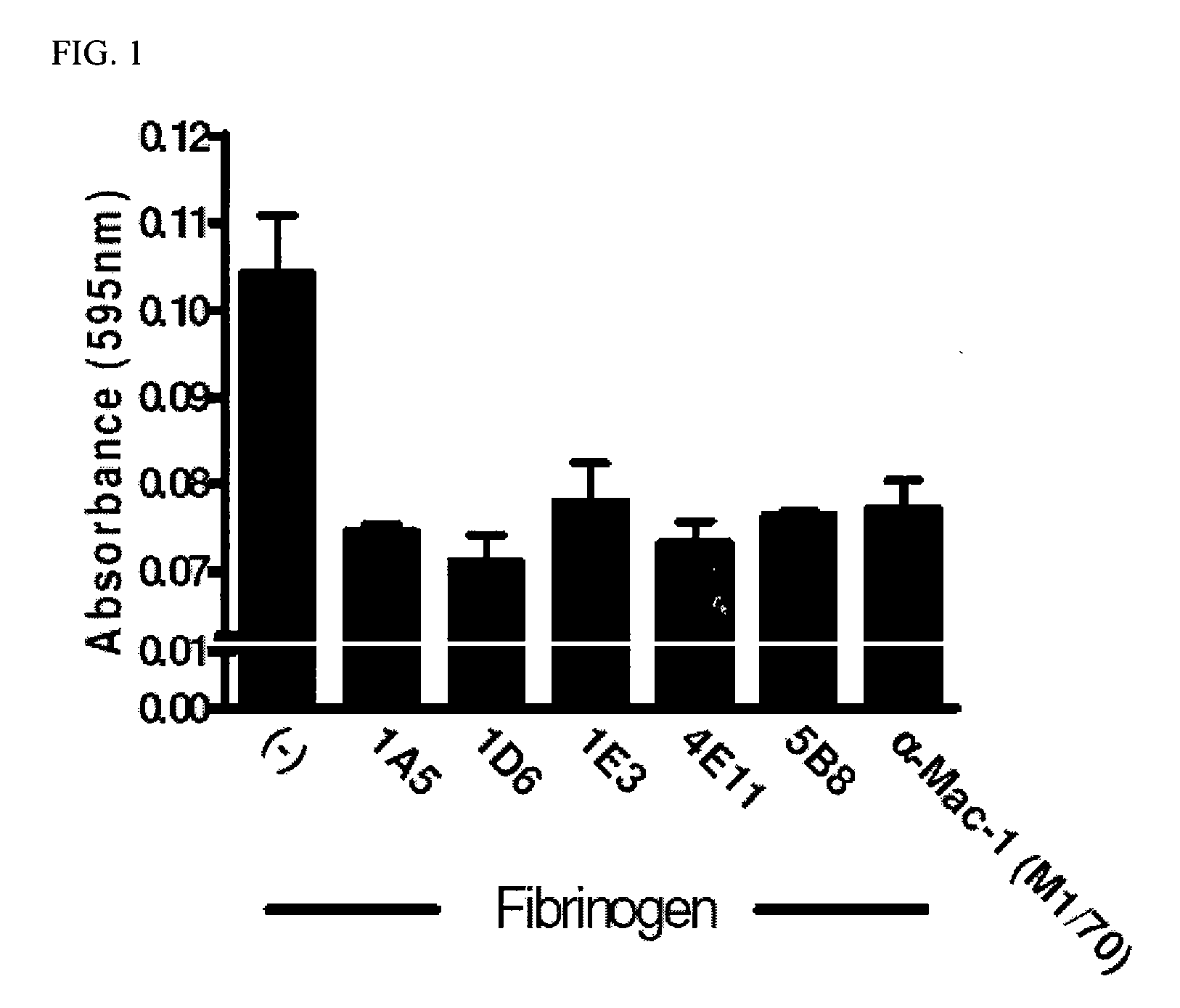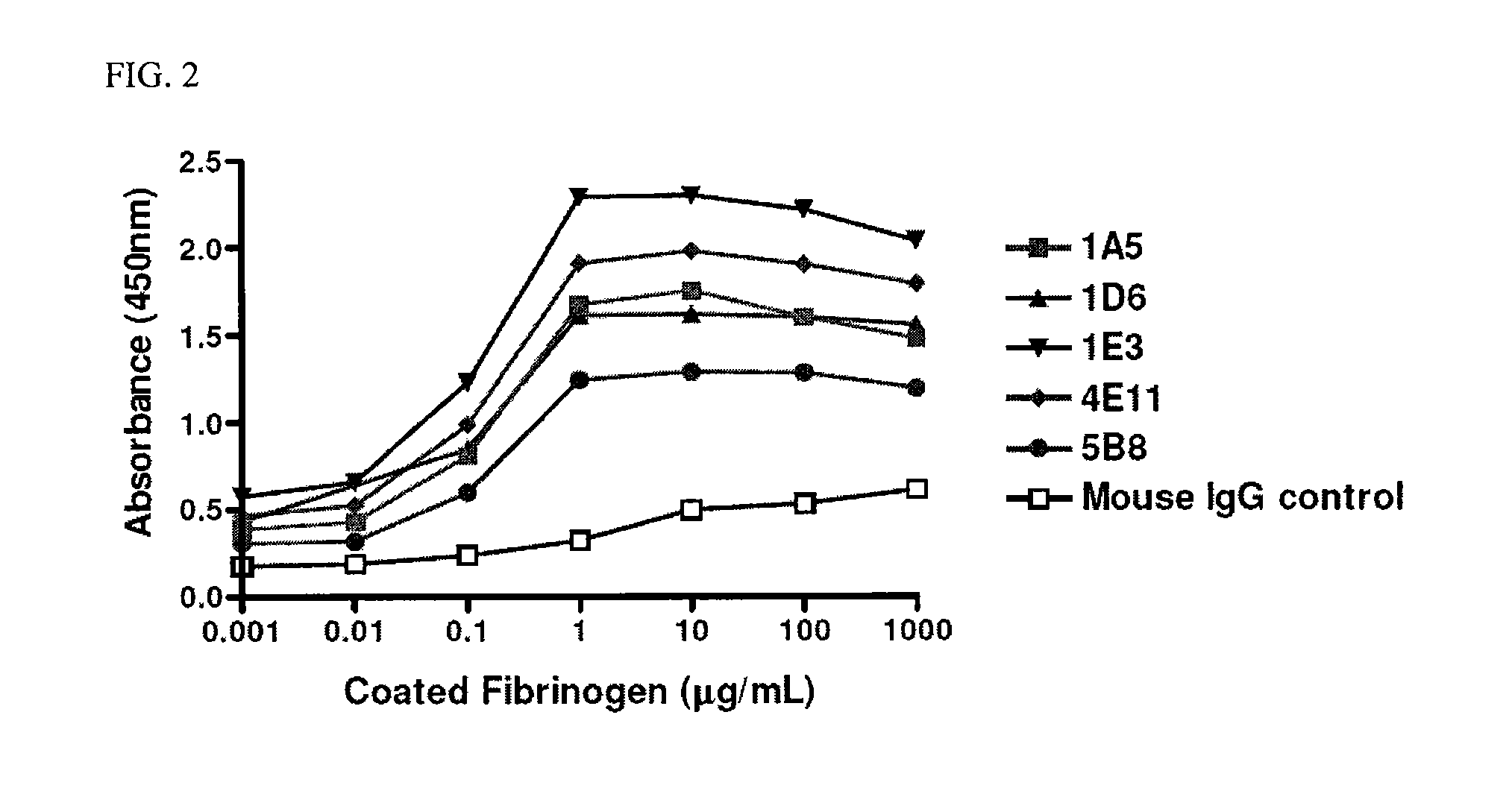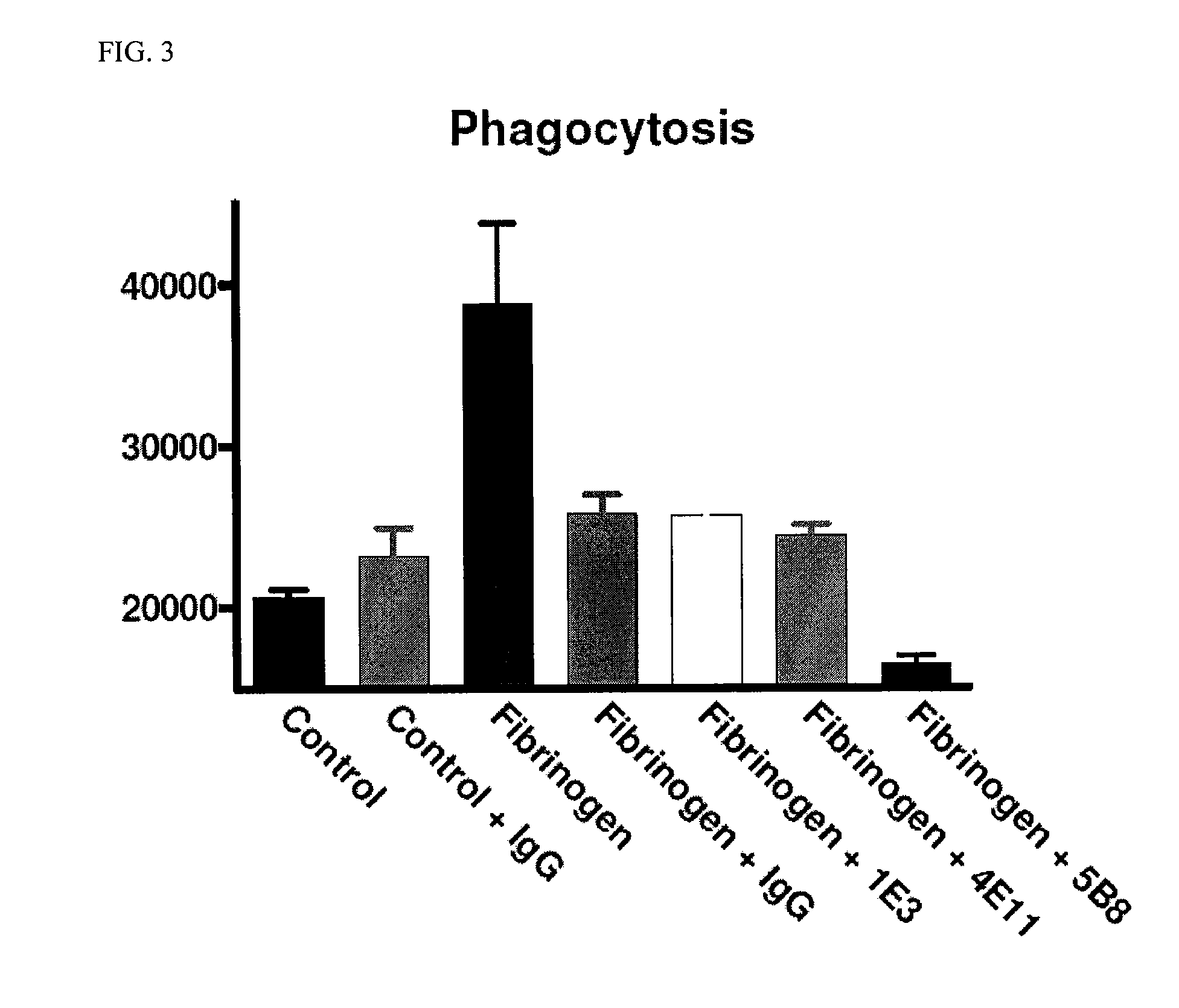Monoclonal Antibodies
a monoclonal antibody and antibody technology, applied in the field of monoclonal antibodies, can solve the problems of no specific inhibitor of fibrinogen/mac-1 binding, damage to the myelin that insulates and protects nerve fibers, etc., and achieve the effect of reducing the pro-inflammatory effect of fibrinogen
- Summary
- Abstract
- Description
- Claims
- Application Information
AI Technical Summary
Benefits of technology
Problems solved by technology
Method used
Image
Examples
example 1
Generation of Monoclonal Antibodies
[0144]Peptide sequences corresponding to the exact amino acids on the γ chain of fibrinogen that have been shown to be critical for the interaction of fibrinogen with Mac-1 were synthesized (Peptide #1: CGWTVLQKRIDGSL (SEQ TD NO:17) and Peptide #2: CKKTTMKIIPFNRLTIG (SEQ ID NO:18)). These two peptides were synthesized with corresponding N-terminal cysteine residues to allow for conjugation to the carrier protein keyhole limpet hemocyanin (KLH) which promotes a robust antibody response in vivo. Both peptides were used to immunize three mice generating an antibody response in these mice. Preliminary serum screening revealed a strong antibody titer against these peptides and lead to the subsequent generation of hybridomas producing clonal antibodies against these two peptide sequences. The initial screening of 480 hybridoma clones was performed by ELISA against both peptides as well as the carrier protein. The positive clones were expanded and reteste...
example 2
Monoclonal Antibodies Against the γ Chain of Fibrinogen Inhibit Phagocytosis by Microrglia
[0145]Phagocytosis is a major function of activated microglia and macrophages that is mediated by Mac-1. Phagocytosis assays were performed on microglia as previously described. See, Adams et al., 2007, J. Exp. Med. 204:571-582, incorporated herein by reference in its entirety. The fibrin-derived γ377-395 peptide inhibits microglia activation and suppresses relapsing paralysis in central nervous system autoimmune disease. The monoclonal antibody 5B8 against the modified fibrin γ377-395 epitope showed superior efficacy in inhibiting phagocytosis in vitro. This antibody in in vivo studies shows a prophylactic and therapeutic administration in animal models for MS as was previously described for the γ377-395 peptide.
example 3
Monoclonal Antibody 5B8 Suppresses Relapses Incidence in a Remitting-Relapsing Animal Model of Experimental Autoimmune Encephalomyelitis
[0146]To assess the effects of the fibrin antibodies in the regulation of microglia activation and demyelination in vivo, two of the clones identified in the phagocytosis assay to mice after the development of PLP EAE were administered. Antibodies 5B8 and 4E11 were administered three times per week at 250 μg per mouse. As shown in FIG. 4, the antibody 4E11 did not have a substantial effect in the development of EAE. By contrast, the antibody 5B8 showed a suppression of clinical symptoms at the time of the relapse.
Other Embodiments
[0147]The detailed description set-forth above is provided to aid those skilled in the art in practicing the present invention. However, the invention described and claimed herein is not to be limited in scope by the specific embodiments herein disclosed because these embodiments are intended as illustration of several aspe...
PUM
| Property | Measurement | Unit |
|---|---|---|
| Fraction | aaaaa | aaaaa |
| Fraction | aaaaa | aaaaa |
| Fraction | aaaaa | aaaaa |
Abstract
Description
Claims
Application Information
 Login to View More
Login to View More - R&D
- Intellectual Property
- Life Sciences
- Materials
- Tech Scout
- Unparalleled Data Quality
- Higher Quality Content
- 60% Fewer Hallucinations
Browse by: Latest US Patents, China's latest patents, Technical Efficacy Thesaurus, Application Domain, Technology Topic, Popular Technical Reports.
© 2025 PatSnap. All rights reserved.Legal|Privacy policy|Modern Slavery Act Transparency Statement|Sitemap|About US| Contact US: help@patsnap.com



